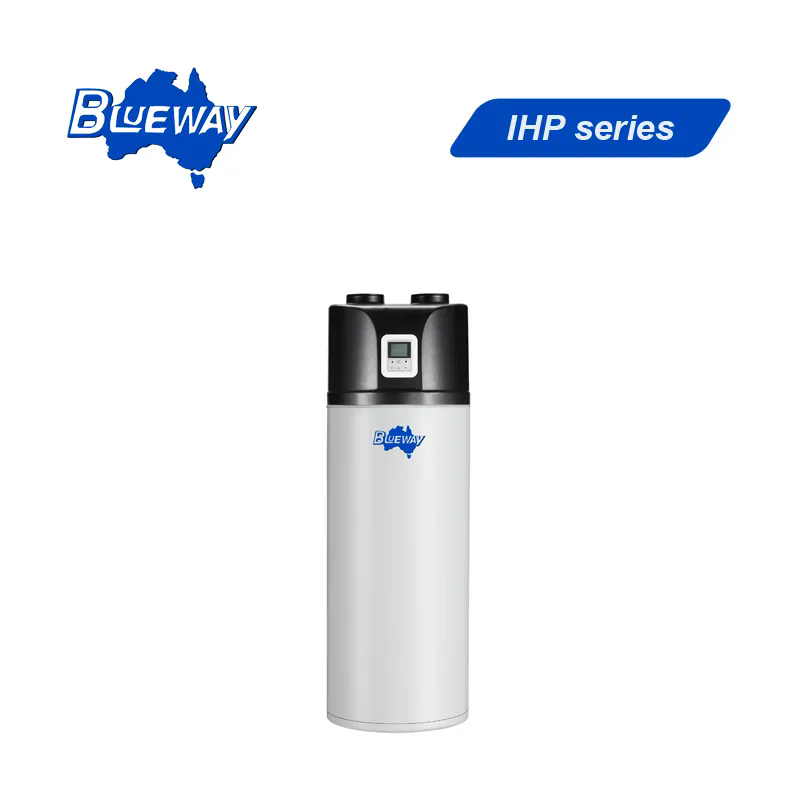Is the Hot Water Heat Pump the Future of Energy-Efficient Water Heating?
2024-11-12
As the world continues to seek sustainable solutions to reduce energy consumption and combat climate change, innovative technologies are emerging across various sectors. One such technology making waves in the heating industry is the hot water heat pump. But is the hot water heat pump the future of energy-efficient water heating? Let’s explore its benefits, how it works, and whether it’s a suitable choice for homeowners and businesses alike.
1. What is a Hot Water Heat Pump?
A hot water heat pump is a highly efficient water heating system that works by transferring heat from the air (or ground, in some systems) to heat water. Unlike conventional water heaters that generate heat through electricity or gas, a heat pump uses the principles of thermodynamics to move heat from one place to another. This process requires less energy than traditional heating methods, making it more energy-efficient and environmentally friendly.
Essentially, a hot water heat pump works by extracting heat from the surrounding air, compressing it, and transferring it into the water tank. This is similar to how a refrigerator works, but in reverse: instead of removing heat from inside the fridge, it moves heat into the water, effectively warming it.
2. How Does a Hot Water Heat Pump Work?
The operation of a hot water heat pump can be broken down into a few simple steps:
- Heat Absorption: The pump draws in air from the surrounding environment. Even in cooler temperatures, the air still contains heat energy, which the heat pump can extract.
- Compression: The extracted heat is then passed through a compressor, which increases the temperature of the heat and makes it more concentrated.
- Heat Transfer: The concentrated heat is transferred into the water in the tank, effectively raising its temperature.
- Storage: Once the water has reached the desired temperature, it is stored in the tank, ready for use.
This entire process requires significantly less energy than traditional water heating methods because the pump is simply moving heat instead of generating it.
3. Why is the Hot Water Heat Pump Considered Energy-Efficient?
The efficiency of a hot water heat pump lies in its ability to move heat rather than generate it. This results in a much higher coefficient of performance (COP) compared to conventional electric water heaters or gas systems.
- Higher COP: The COP is a ratio that indicates the amount of heat produced per unit of energy consumed. For a hot water heat pump, the COP can be as high as 4 or 5, meaning for every 1 unit of energy consumed, 4 or 5 units of heat are produced. In contrast, traditional electric water heaters typically have a COP of 1, where the amount of energy used equals the amount of heat generated.
- Reduced Energy Consumption: Since a hot water heat pump requires less energy to produce the same amount of heat, it can lead to significant reductions in electricity bills. In fact, studies have shown that heat pump water heaters use 50-70% less energy than traditional water heaters, depending on the climate and the efficiency of the unit.
- Environmentally Friendly: By using less energy and leveraging renewable heat from the environment, hot water heat pumps produce fewer carbon emissions, making them a greener alternative to traditional water heating methods. This aligns with global efforts to reduce the carbon footprint and mitigate climate change.
4. What Are the Benefits of Using a Hot Water Heat Pump?
There are several advantages to choosing a hot water heat pump over more conventional water heating systems:
- Cost Savings: While the initial cost of purchasing and installing a heat pump may be higher than traditional water heaters, the long-term savings on energy bills can make it a more cost-effective option over time. The energy savings can lead to a payback period of 3-5 years, depending on the usage and local energy rates.
- Longevity: Hot water heat pumps are known for their durability and can last up to 15 years or more with proper maintenance. This is significantly longer than many gas or electric water heaters, which typically last 8-12 years.
- Consistent Hot Water Supply: Heat pump systems can provide a constant supply of hot water, even in households with higher hot water demands, making them ideal for large families or businesses.
- Quiet Operation: Modern heat pumps are designed to operate quietly, making them less disruptive than some traditional heating systems, which can be noisy.
- Versatility: In addition to heating water, some heat pump systems can also be used to provide space heating for the home, further enhancing their energy efficiency and reducing the need for separate heating units.
5. What Are the Drawbacks of Hot Water Heat Pumps?
Despite their many advantages, hot water heat pumps do come with some limitations:
- Initial Cost: The upfront cost of purchasing and installing a heat pump water heater can be higher than traditional water heaters. While this cost can be offset over time through energy savings, it may be a deterrent for some consumers.
- Climate Sensitivity: The efficiency of a hot water heat pump can be affected by the ambient temperature. In colder climates, where the air temperature is lower, the system may need to work harder to extract heat, reducing its overall efficiency. However, newer models are designed to operate in colder temperatures, although they may require additional energy for optimal performance.
- Space Requirements: Heat pumps can be larger than traditional water heaters, and they require space for both the unit and the air intake. This may be a concern in homes with limited space or in properties where the system needs to be placed outside.
- Installation Complexity: Installing a hot water heat pump can be more complex than installing a traditional water heater, and it often requires a professional installer. The system also requires regular maintenance to keep it running at peak efficiency.
6. Is the Hot Water Heat Pump the Future of Water Heating?
Given the growing emphasis on energy efficiency and sustainability, hot water heat pumps are increasingly being seen as a key player in the future of water heating. As technology continues to evolve, manufacturers are improving the efficiency and affordability of heat pump systems, making them a more accessible option for homeowners and businesses alike.
While the initial investment can be higher, the long-term savings and environmental benefits make hot water heat pumps an appealing choice. With the global push towards reducing carbon emissions and relying on renewable energy sources, it’s likely that we’ll see even more widespread adoption of these systems in the years to come.
Conclusion
Hot water heat pumps represent a significant step forward in energy-efficient water heating. By leveraging ambient heat and reducing energy consumption, they offer a greener, cost-effective alternative to traditional water heaters. While there are some challenges associated with installation and climate sensitivity, the long-term benefits in terms of energy savings, sustainability, and longevity make hot water heat pumps an excellent option for those looking to invest in the future of water heating.



